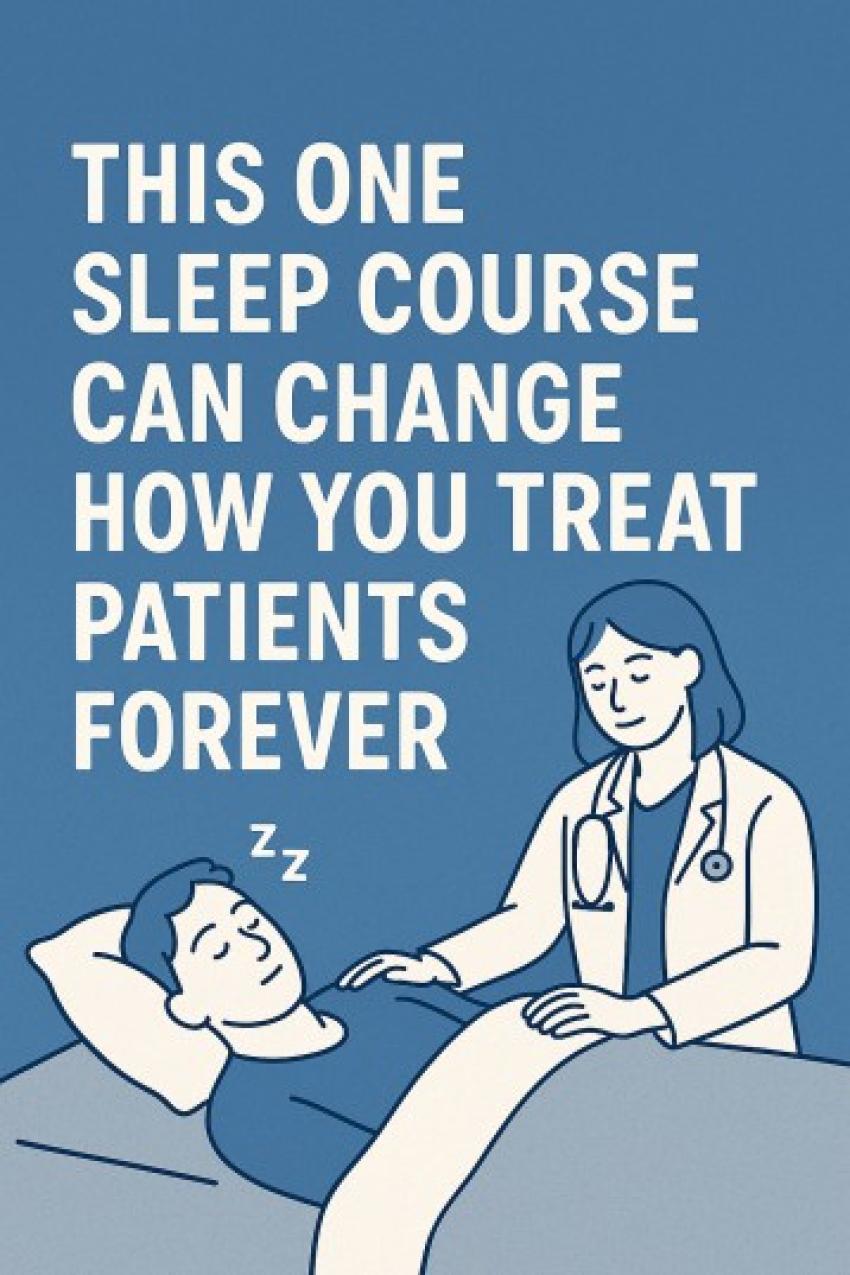
Sleep problems are more common than most doctors think. Many patients keep coming back with fatigue, snoring, or even mood changes. And often, sleep is the missing piece. If you’re a doctor, ENT specialist, or a healthcare professional, understanding sleep disorders isn’t just useful—it’s essential.
There’s one course that’s helping doctors like you treat patients better. It covers the science behind sleep, how to spot hidden sleep disorders, and what to do about them. It’s practical, focused, and built for busy professionals.
Why Sleep Medicine Matters Now
More people in India are reporting poor sleep. Sleep apnea, insomnia, restless legs, and even parasomnias are rising. And these don’t just affect sleep. They connect with hypertension, diabetes, obesity, anxiety, and heart problems.
But here’s the issue: sleep isn’t taught in most medical colleges. That’s why a structured sleep medicine course can fill that gap.
This course focuses on real patient scenarios. It doesn’t just give you theory—it helps you apply it. You’ll learn how to:
Recognize signs of obstructive sleep apnea
Understand the impact of insomnia and poor sleep quality
Use screening tools like ESS (Epworth Sleepiness Scale) and STOP-BANG
Recommend proper tests like polysomnography or a home-based sleep study
Know when to refer for CPAP therapy or advanced intervention
Designed for ENT, General Practitioners & Specialists
If you’re an ENT doctor, this course will help you connect airway issues with sleep-disordered breathing. You’ll learn how snoring, nasal obstruction, and deviated septum can cause upper airway resistance syndrome (UARS) or OSA.
If you’re a physician, you’ll finally understand why some patients with high BP or diabetes never improve—because poor sleep is getting in the way.
If you’re a psychiatrist or neurologist, you’ll connect the dots between anxiety, depression, seizures, and poor sleep hygiene.
What You’ll Learn Inside the Course
Basics of normal sleep cycles and what disrupts them
Clinical signs of sleep-related breathing disorders
How to talk to patients about snoring and daytime sleepiness
How to use tools like PSG (polysomnography) or MSLT (multiple sleep latency test)
Treatment options: lifestyle, CPAP, oral appliances, ENT solutions
And the best part? You don’t need to travel. It’s available in India and some parts can be done online.
Real Skills. Real Impact.
This isn’t just about learning new terms. After this course, you’ll see patients differently. You’ll ask new questions. You’ll finally have answers for those who say, “i sleep 8 hours but still feel tired.”
You’ll catch red flags that others miss. You’ll help someone avoid a heart attack just by treating their sleep apnea. You’ll improve quality of life—without needing new machines or big changes.
That’s what makes this course valuable.
Why This Course Is Different
Created by experienced sleep specialists
Tailored to India’s clinical cases
Covers both adult and pediatric sleep disorders
Fits your schedule (some parts can be done at your own pace)
Gives you practical tools to use in daily OPD
Final Thought
You don’t have to be a sleep expert to start. But if you want to treat patients better, this is the place to begin.
Sleep medicine isn’t optional anymore. It’s part of modern patient care.
This course can help you do it right.




